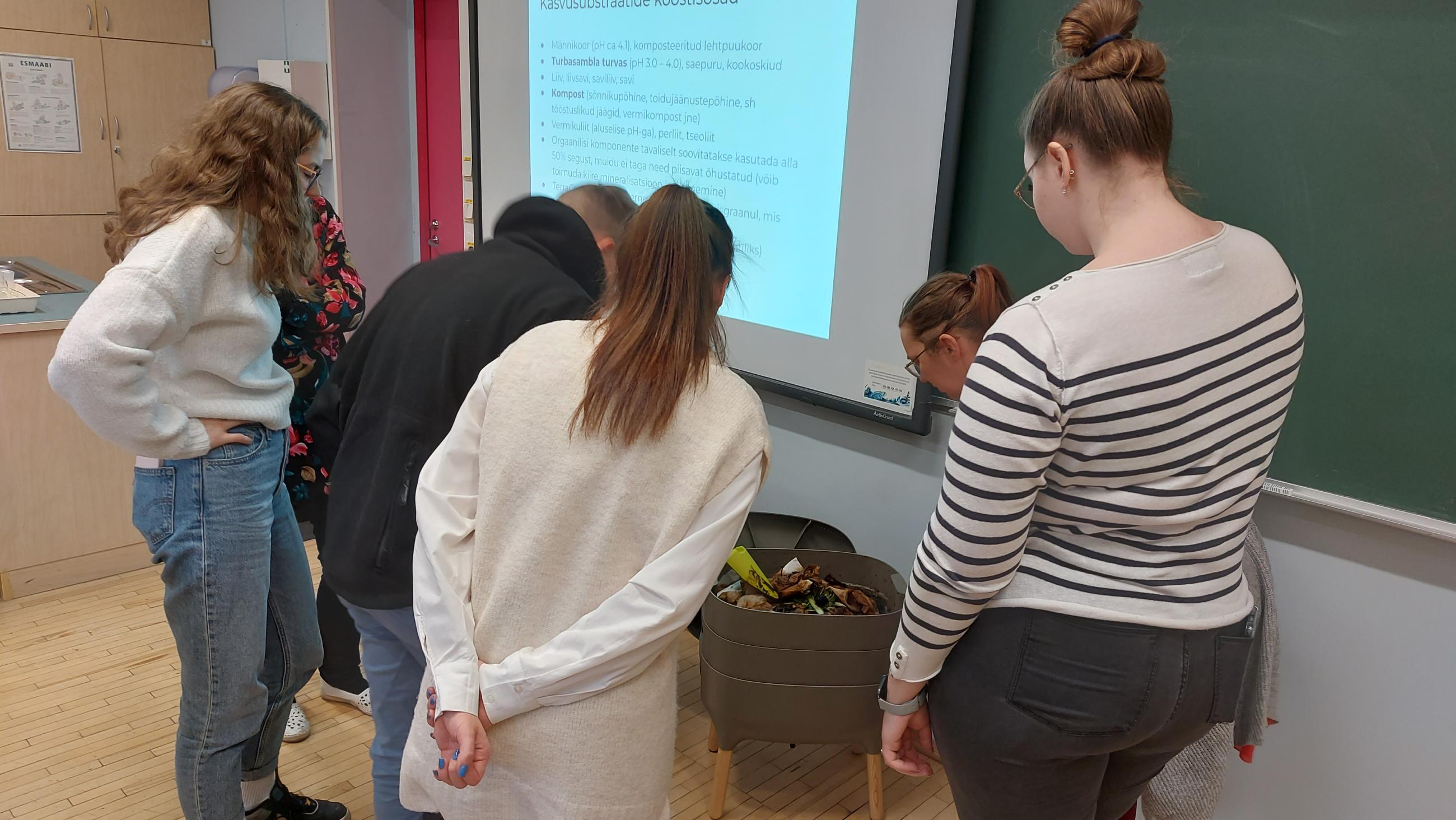From Waste to Taste: A Sustainable Journey
At Tallinn University, Natural Sciences teacher education students are diving into sustainability with a hands-on project that brings the cycle of life into focus, right from kitchen scraps to the dinner table.

The story begins with composting: in the Science Kitchen, plant-based waste is transformed by hardworking compost worms in indoor vermicomposters. Vermicomposting not only reduces household waste but also enriches the soil with nutrients and beneficial microorganisms, closing the loop of organic matter recycling. Students then take the soil into the lab, where they analyze its properties. They carry out pH experiments and mix up the ideal soil tailored to the needs of different plants, gaining a practical understanding of how chemistry and biology directly influence plant growth. The plants are grown in comparative conditions. Once planted, herbs and vegetables are nurtured with watering and lighting systems designed and built by the students themselves. Growth is observed over several weeks, with comparisons drawn between different growing conditions—an exercise in scientific observation and experimental design.
Finally, at the end of the semester, the harvest returns to the Science Kitchen, where the same group of students use it in cooking sessions. This well-rounded project connects various disciplines from home economics and science to engineering, demonstrating how science can turn waste into resources, and how mindful choices can make sustainability a lived experience.
Inspired by the ease and success of this indoor model (based on Science Kitchen experiences), several public schools in Estonia have also adopted vermicomposters, bringing the life cycle closer to their classrooms and empowering younger learners to experience sustainability first-hand.